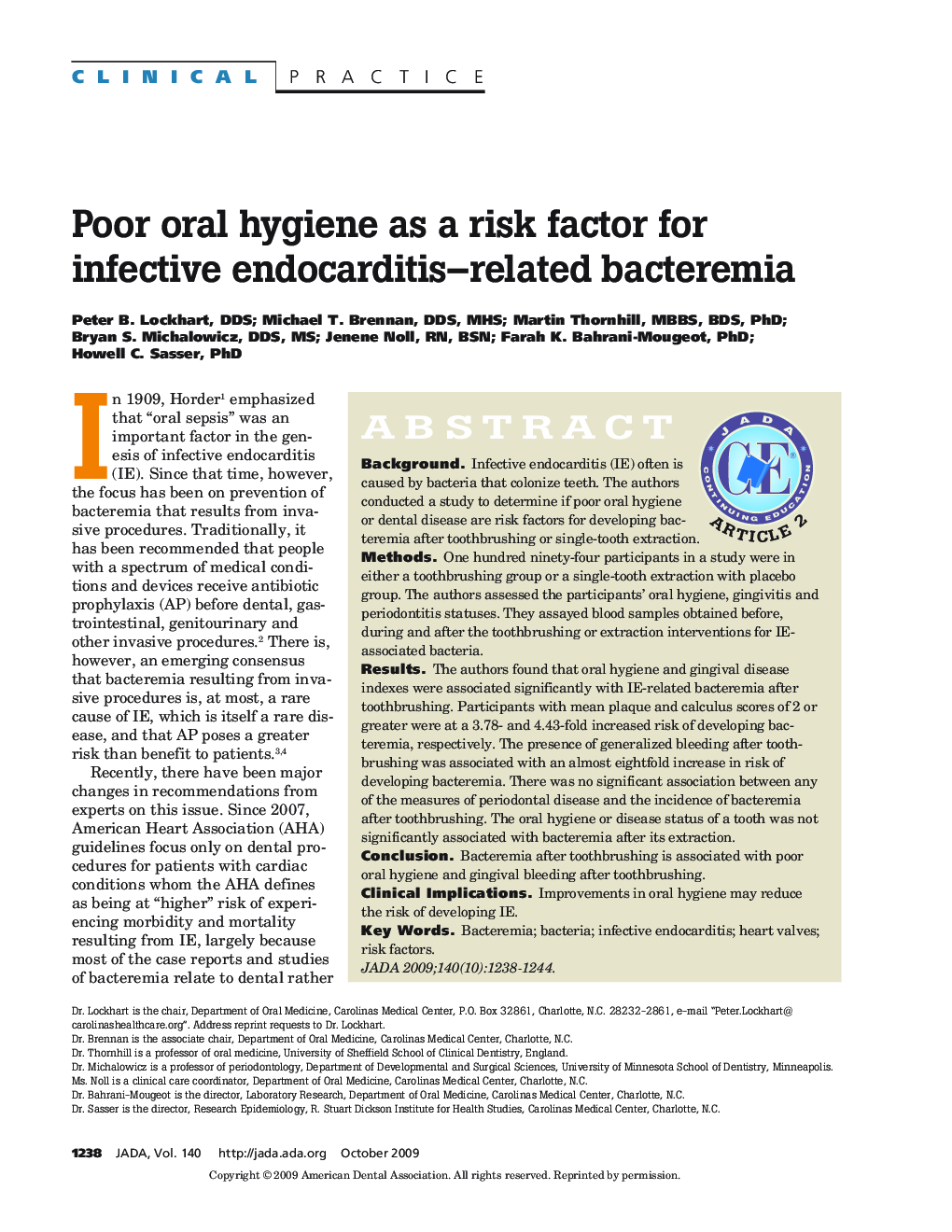| Article ID | Journal | Published Year | Pages | File Type |
|---|---|---|---|---|
| 3139046 | The Journal of the American Dental Association | 2009 | 7 Pages |
ABSTRACT BackgroundInfective endocarditis (IE) often is caused by bacteria that colonize teeth. The authors conducted a study to determine if poor oral hygiene or dental disease are risk factors for developing bacteremia after toothbrushing or single-tooth extraction.MethodsOne hundred ninety-four participants in a study were in either a toothbrushing group or a single-tooth extraction with placebo group. The authors assessed the participants' oral hygiene, gingivitis and periodontitis statuses. They assayed blood samples obtained before, during and after the toothbrushing or extraction interventions for IE-associated bacteria.ResultsThe authors found that oral hygiene and gingival disease indexes were associated significantly with IE-related bacteremia after toothbrushing. Participants with mean plaque and calculus scores of 2 or greater were at a 3.78- and 4.43-fold increased risk of developing bacteremia, respectively. The presence of generalized bleeding after toothbrushing was associated with an almost eightfold increase in risk of developing bacteremia. There was no significant association between any of the measures of periodontal disease and the incidence of bacteremia after toothbrushing. The oral hygiene or disease status of a tooth was not significantly associated with bacteremia after its extraction.ConclusionBacteremia after toothbrushing is associated with poor oral hygiene and gingival bleeding after toothbrushing.Clinical ImplicationsImprovements in oral hygiene may reduce the risk of developing IE.
